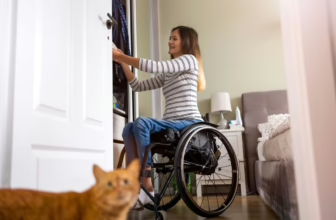When someone you love experiences a mental health crisis, the world tilts. Normal routines: morning coffee, evening TV, quiet talks suddenly feel like walking on shifting ground. The fear of what happened lingers even after the worst has passed. You may find yourself overthinking every word, trying to protect them while silently wondering if things will ever feel normal again.
The truth is, rebuilding trust and support after a crisis is rarely a straight path. It’s a slow return to steadiness through patience, gentleness, and everyday acts of care. Healing lives in small gestures: showing up, listening without fixing, and allowing space for both people to breathe again. This process is more about endurance than perfection, more about honesty than reassurance. Over time, consistency becomes comfort, and comfort turns into trust.
When Healing Moves Slowly
In the early days after a crisis, everyone wants proof that things are improving. You may watch closely for signs: smiles, energy, normal conversation, and feel discouraged when they come and go. Recovery rarely looks like steady progress. It’s more like ocean waves: calm one moment, unpredictable the next. That inconsistency can feel unsettling, especially when you want stability so badly.
This is when patience matters most. Keep routines simple but reliable shared meals, quiet evenings, and predictable mornings. Structure signals safety and tells your loved one the world isn’t falling apart. For many families, guidance from professionals who specialize in interventions for mental health helps define roles and create practical boundaries that prevent burnout on both sides.
These experts don’t replace care; they help shape it so everyone involved can sustain it. Healing takes time, and time takes trust. You can’t rush stability into existence. What brings it back is rhythm, not speed. The slow repetition of ordinary days, where life begins to feel recognizable again.
Talking Without Walking on Glass
Once the crisis calms, the hardest part often isn’t silence; it’s conversation. You want to say the right thing, but fear making them feel judged or fragile. They may want to open up but worry that honesty will cause concern. Both of you end up walking carefully, afraid of breaking the fragile calm.
Instead of diving into heavy discussions right away, ease back into connection. Talk about things that feel safe: what’s for dinner, the movie you watched, or the weather outside. Simple topics create openings for deeper ones later. When the time comes for harder conversations, focus on listening rather than fixing. Phrases like I’m here if you want to talk or That sounds really hard communicate safety without pressure.
It also helps to establish gentle boundaries. You don’t need to have every answer or absorb every emotion. It’s enough to show that you’re available and trustworthy. Real communication doesn’t mean constant talking. It means creating space where both sides can speak honestly without fear of rejection.
What Trust Feels Like in Real Life
Trust rarely rebuilds in big moments. It reappears in the quiet proof of consistency: when you call back, when you follow through, when you don’t give up even after a hard day. Small reliability builds more confidence than grand reassurance ever could.
If your loved one feels guilt or shame about what happened, letting them handle everyday responsibilities can be healing. Asking them to plan dinner, take the dog for a walk, or manage a bill shows that you believe in their strength. For you, those acts are reminders that control isn’t the same as care. Letting go of constant vigilance lets love breathe again.
This is also where mental health resources make a difference. Community programs, peer-support groups, and online education hubs can help both of you learn new coping tools and feel less alone in the process. Recovery deepens when information and connection exist beyond your own household. It reminds everyone involved that healing doesn’t happen in isolation.
Trust doesn’t return suddenly; it returns gradually, in the spaces between effort and understanding. The real sign of progress isn’t perfection; it’s ease. When daily life starts feeling less tense and more natural, that’s how you know the foundation is reforming underneath you both.
Facing Setbacks Without Losing Heart
Setbacks will come. That’s not failure, it’s part of the process. A small trigger, a stressful day, or even a random memory can make emotions spiral again. When it happens, the old fear rushes back: what if we’re back to the beginning?
You’re not. Each setback is a test, not a restart. What matters is how you respond. Instead of reacting in panic, take a breath and ground the moment. Ask gentle questions like, What would help right now? or Do you want to talk, or should I just sit with you? Calm responses communicate stability more powerfully than any words.
It’s also okay to feel frustrated when progress seems to slip. The best thing you can do is remember that recovery isn’t about eliminating struggle. It’s about learning how to move through it together. Each time you weather a difficult day and find your way back to calm, the relationship strengthens in quiet, lasting ways.
Remembering the Relationship Beneath the Crisis
When a loved one’s mental health becomes the main focus, life can shrink to routines of care and monitoring. Every interaction revolves around appointments, symptoms, or check-ins. The friendship, laughter, and shared interests that once made the relationship vibrant start to fade. That loss can feel invisible but heavy.
The best way to counter it is to intentionally reintroduce normalcy. Do something light together: a walk, a funny show, a weekend drive. These activities aren’t distractions; they’re healing tools. They remind you both that connection isn’t defined only by difficulty. Enjoyment is part of recovery, too. Bringing back shared joy helps dissolve the emotional distance that crisis creates. It signals that you see your loved one as more than their illness and that you still belong to each other beyond it.
When You’re the One Who’s Drained
Supporting someone through a mental health recovery can leave you quietly depleted. You stay strong for them, but your own emotions accumulate in the background: tiredness, guilt, even resentment. Those feelings don’t mean you’re unkind; they mean you’re human.
Take your own well-being seriously. Rest isn’t a reward for finishing care; it’s part of care. Talk to friends or a counselor, take breaks without guilt, and rebuild parts of your life that exist outside the crisis. Your stability doesn’t just benefit you; it stabilizes the entire environment around your loved one.
Burnout happens slowly, and recovery from it takes just as much intention as theirs. By nurturing yourself, you model what sustainable healing looks like, balanced, real, and ongoing.
Letting Change Redefine What Comes Next
After a crisis, people often long for things to go back to normal. The truth is, they won’t, and that’s okay. The relationship changes because both of you change. You become more aware, more cautious, maybe more honest. Growth doesn’t erase the hard parts; it transforms them into lessons that shape how you love.
Instead of trying to rebuild the old version of your connection, let a new one take its place. Boundaries might look different now. Communication may be slower but truer. Trust may feel quieter but more durable. These aren’t losses, they’re signs of maturity. A relationship that survives hardship learns a kind of grace that easy times can’t teach. Change doesn’t signal damage; it signals endurance. What comes after a mental health crisis isn’t the end of what you had. It’s the beginning of something more real.
A Quieter Kind of Trust
Eventually, you’ll notice things feel steady again. The house is calm. Conversations happen without hesitation. Laughter returns naturally. You no longer need constant reassurance that things are okay; you can feel it. That’s the quiet victory. Trust rebuilt through patience rarely announces itself. It just becomes the background hum of life again. You both know what it took to get here, and that shared understanding creates a bond deeper than before. Healing doesn’t erase what happened. It simply turns pain into perspective and fear into faith that you can weather what comes next together.
Follow me down the rabbit hole!
I'm Alice and I live with a dizzying assortment of invisible disabilities, including ADHD and fibromyalgia. I write to raise awareness and end the stigma surrounding mental and chronic illnesses of all kinds.








